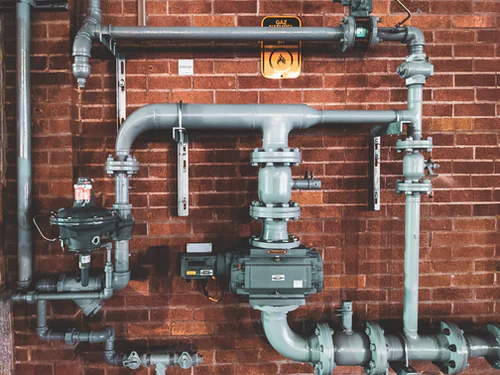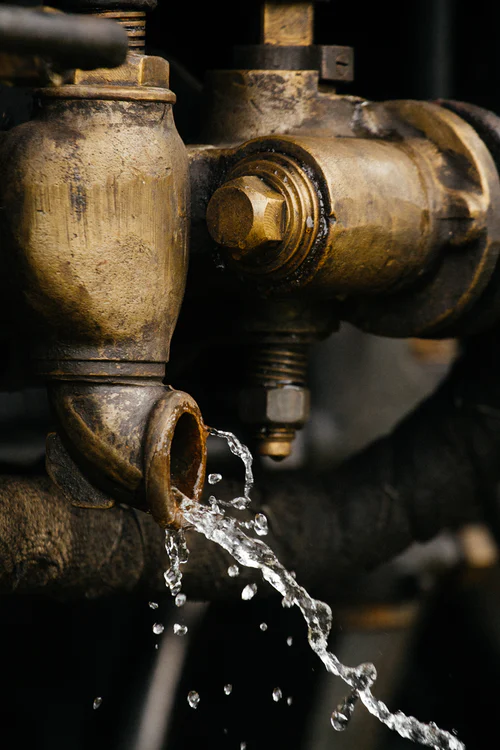Are you tired of dealing with leaking faucets, clogged drains, and blocked pipes? Each time a plumbing problem arises, you have to call the plumber and pay hefty prices for repairs. While it’s not practical to find a DIY fix for every plumbing problem, what you can do is take some preventive measures that will make sure the problems don’t happen in the first place. Wouldn’t it be nice to have no leaks or clogs for once? Well, here are some simple plumbing care solutions you should know that will definitely help reduce your plumbing expenses and the hassle of dealing with plumbing problems.
1. Use Water Softeners
If you don’t know the mineral content of your water supply, chances are its hard water, which is what is found in the vast majority of households in the US. Hard water can affect your plumbing system in a negative way. It usually contains high amounts of calcium and magnesium, which can build up inside your pipes and restrict water flow. It can also corrode joints and fittings.
To effectively deal with hard water your best bet is to install a water softener. You have the option of installing the traditional type of water softener, which uses sodium to counteract the minerals in hard water, or the modern type, which uses electromagnetic pulses to dissolve minerals. Either way, it is important that you get a water softener. This can improve the health of your plumbing system and extend its life, saving you money in the long run.
2. Keep Your Sewer Lines Clear
It’s a good idea to have your sewer lines professionally cleaned every few years. This will reduce the chances of messy sewer blockages that are formed due to the tree roots and other junk that can clog your sewage pipes. The experts at a plumbing company in Salt Lake City caution that drain cleaning services may not be sufficient if there is too much build-up on pipe walls. It’s important to take the necessary preventative measures so you don’t end up having to entirely replace your sewer lines.
3. Avoid Using Chemical Unclogging Products
Even if you try your best to prevent clogs, there are likely still going to be some, considering they are the single most common plumbing problem. There are quite a few chemical-based products available for unclogging drains; however, what you may not know is that these chemicals can cause more harm than good for your pipes. This is because, even though they are apparently successful in unclogging your drains at the time, they often don’t unclog the drain completely, so you’ll end up having to use the chemicals again. As a result of excessive use, the chemicals, which have a high quantity of toxins, can corrode your drain pipes and may even cause leaks.
4. Prevent Drain Clogging
Clogged drains are frustrating to deal with and may cause serious problems for your drainage pipes. Because of the added pressure clogs put on your drainage pipes, they can significantly reduce the lifetime of your system. So you should be careful not to clog your drain pipes too many times. After all, prevention is better (and cheaper) than cure.
Keep an eye on what goes down your drain, and avoid letting food scraps end up there. You should also take care not to let your hair clog your bathroom drains. Consider installing screens over shower drains to collect hair so it can be easily removed. In short, be aware of what’s flushable and what’s not, so you don’t get your drains clogged regularly.
5. Reduce the Water Pressure
The high water pressure might seem like a positive thing; however, it can put excessive stress on your plumbing system. The high pressure can cause damage to your pipes and cause leaks or damaged valves. To measure the water pressure in your pipes using a hose bib gauge, and if it’s higher than 85 psi, it’s a good idea to get a pressure reducer. Installing one of these will go a long way in preventing leaks and damage to your pipes.
6. Know Where the Water Shutoff Valves Are
You should be aware of the locations of the water shutoff valves in your residence. It’s also important that you know where the main shutoff drain is located. This is so that when your plumbing system or sewer system is in need of repairs or cleanups, you know where to turn off the water supply.
7. Be Careful Not to Puncture Pipes
If you’re planning to do some repairs around your house that include drilling or hammering nails into walls, floors, or ceilings, make sure to first check out the area behind those places in case there are pipes situated there. It happens often that pipes start leaking and you don’t notice it until quite a few days have passed. These leaks often happen because of some hole you may have mistakenly drilled into one of the pipes.
8. Keep an Eye Out for Leaks
Did you know that a leaking faucet typically wastes about eight gallons of water each day? Talk about a huge waste of water at a time when drought and water shortages are increasingly widespread. In addition to environmental concerns, wasting water can cost you a lot of money. Try to not let the water go to waste by ignoring small leaks from your faucets, showers, or pipes. Get them fixed before they turn into more serious and expensive problems.
Also make sure to keep an eye out for leaks after every plumbing project, repair, or cleanup. Sometimes even professional plumbers may overlook a leak or lose valve that needs to be resealed or tightened, respectively.
It is essential that you take care of your home’s plumbing system to ensure you have clean water available whenever you need it. A lot of people don’t think about plumbing until a problem arises and then have to go through a long process to get it fixed. You can help keep your plumbing system well-maintained by performing a handful of preventative steps on a regular basis. It will help save you time and money and prevent a whole lot of hassle down the road.



















